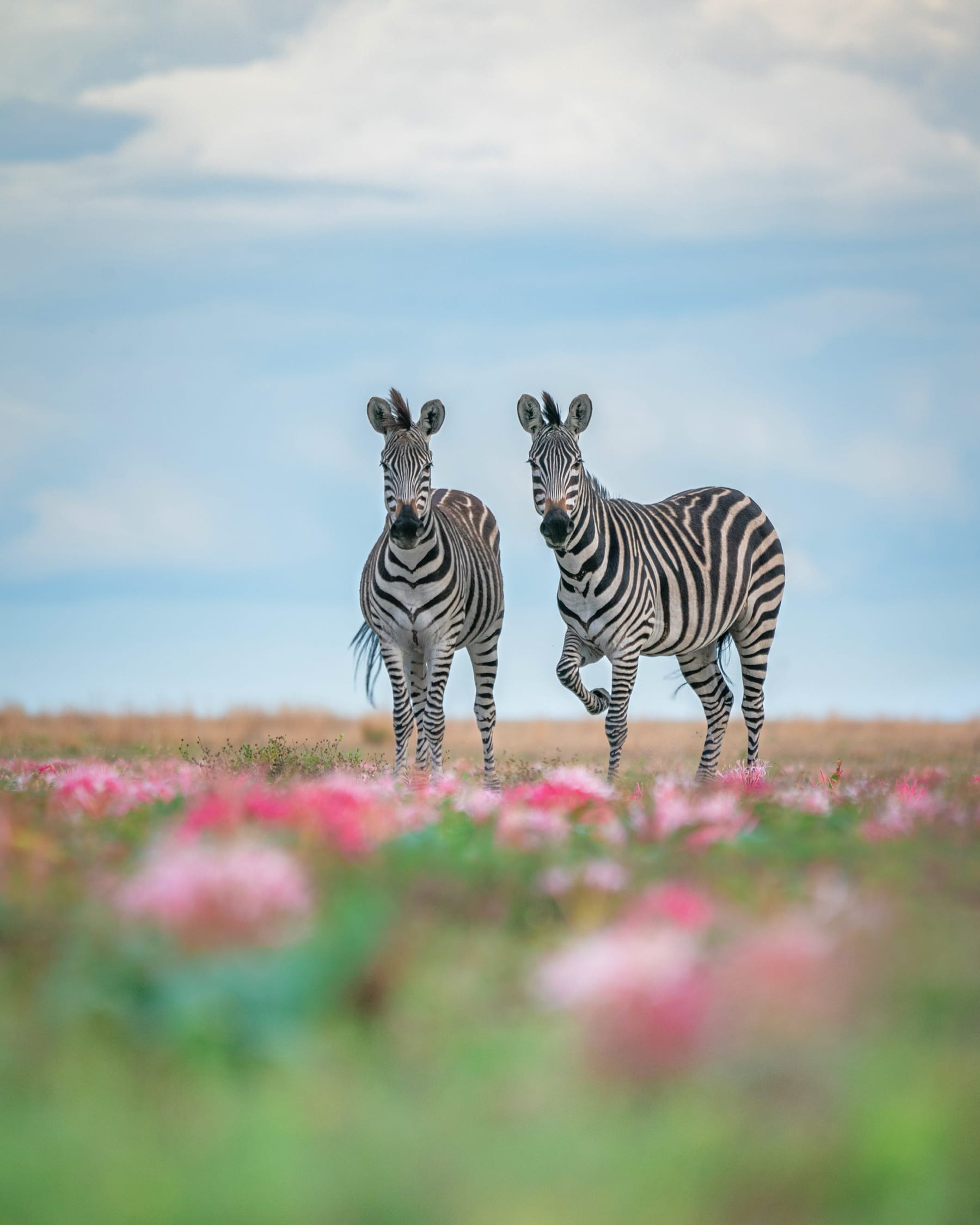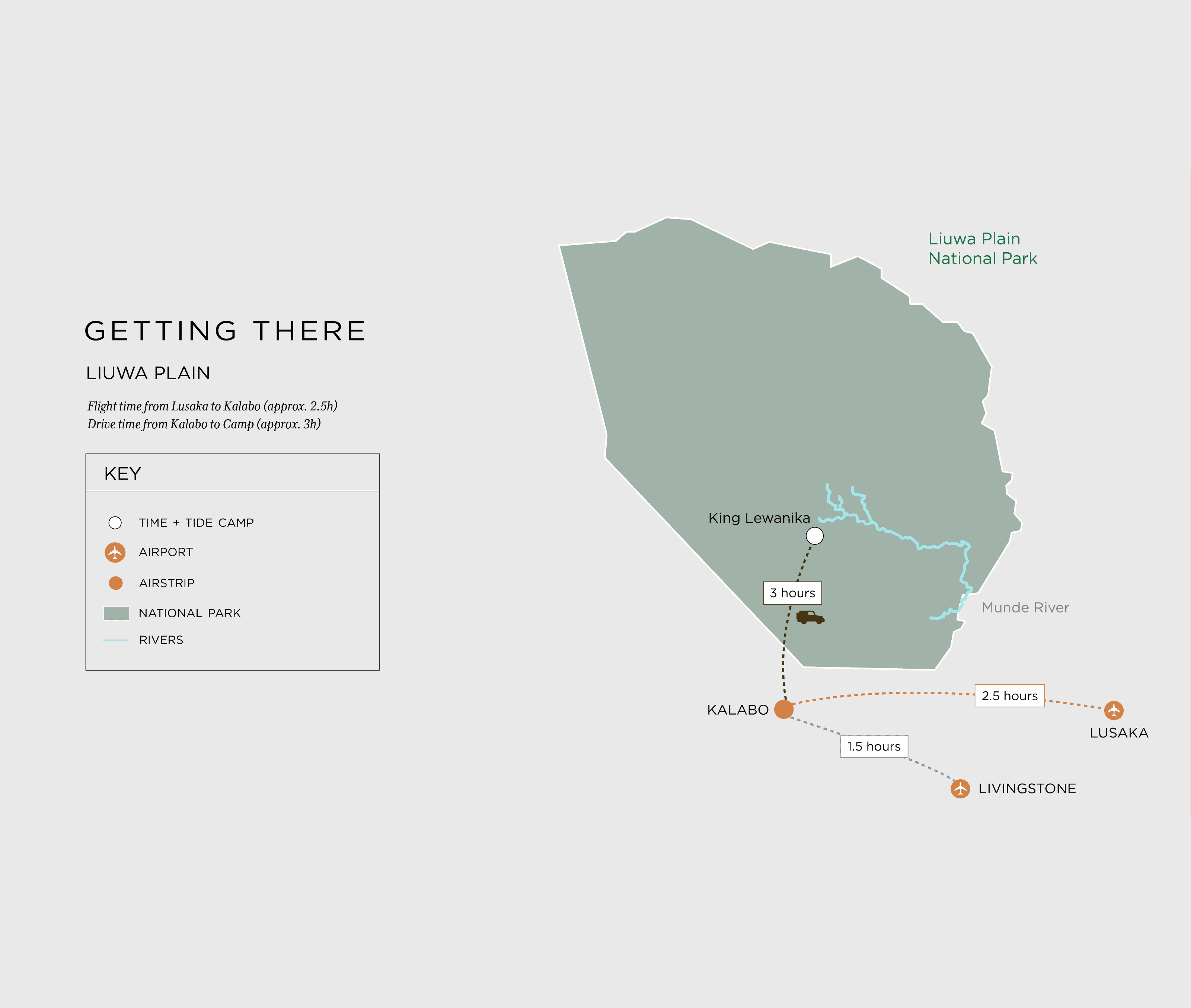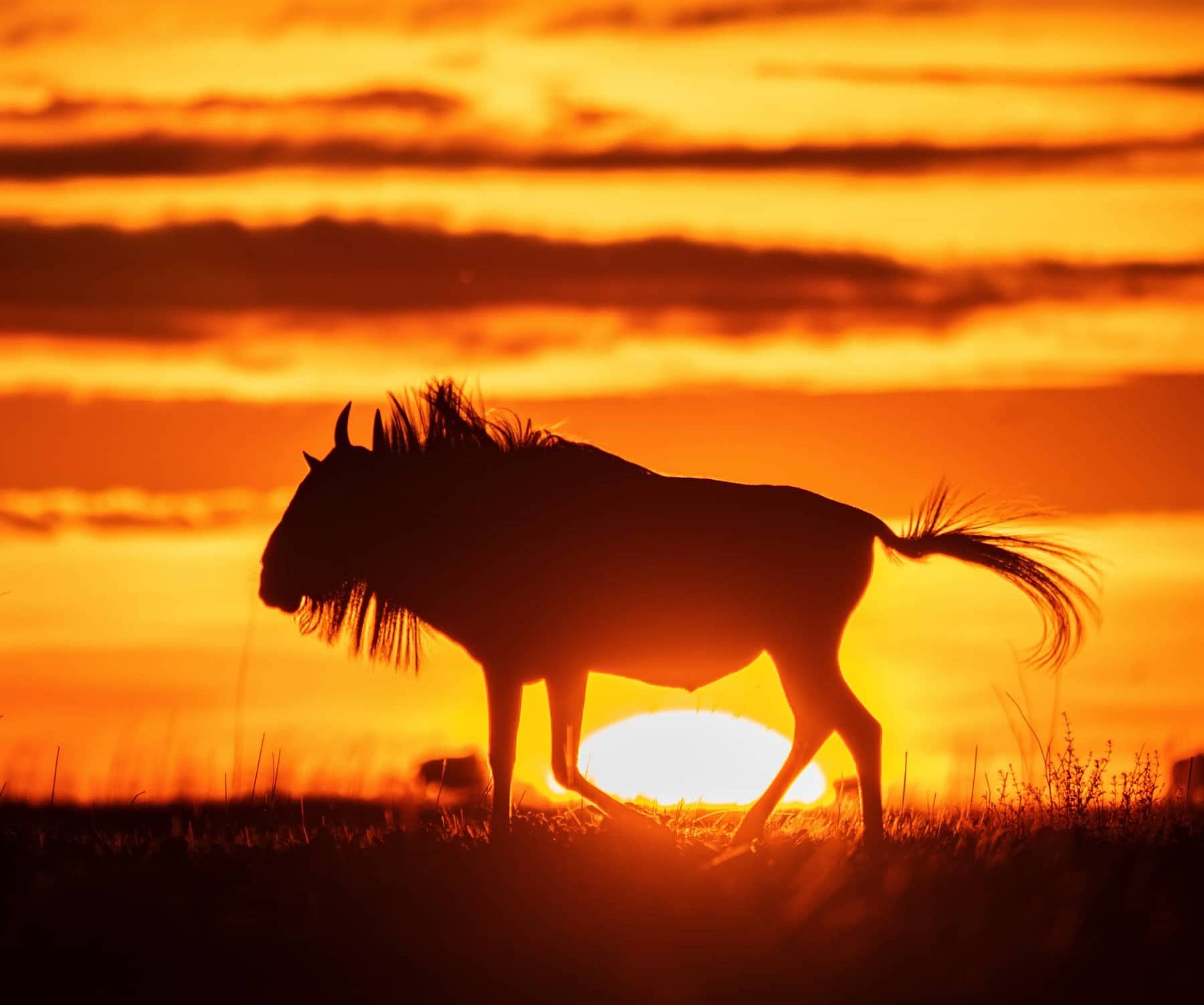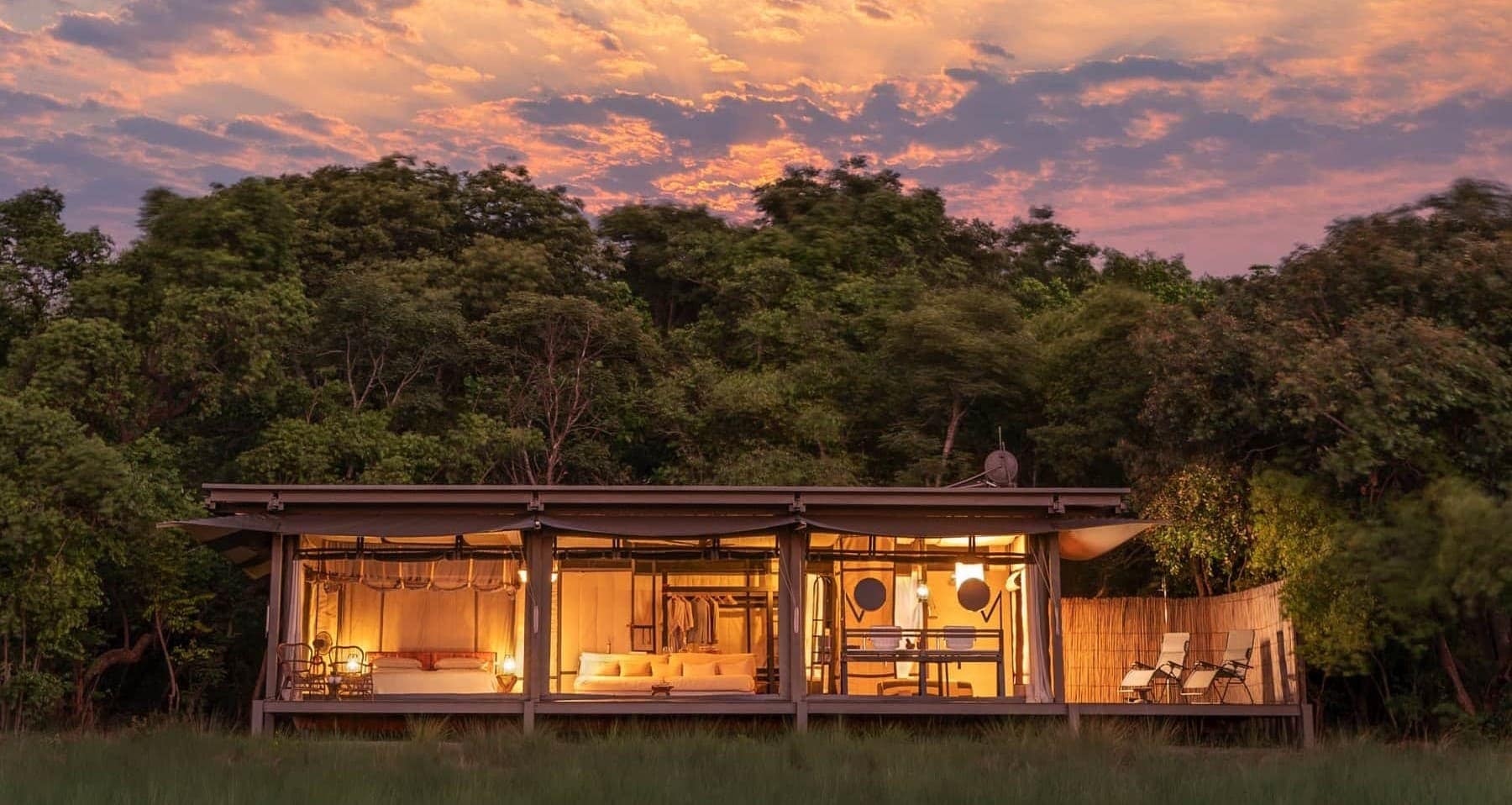


A land unchanged by time, Liuwa Plain’s vast savannah has been protected for over 100 years, yet it’s one of Africa’s best-kept secrets. Gliding above its golden grasslands and shimmering lagoons you’ll touch down at the only permanent camp in the park.
Watch a flock of cranes swirl over a sea of wildflowers in the clear morning sun. Listen to the distant rumble of an afternoon thunderstorm gathering on the curved horizon. Take a deep breath and catch the scent of the long grass as a soft breeze whispers through it. Feel humbled amid the second-largest gathering of wildebeest, thousands of zebra and oribi, hyena in clans of 50 or more, or a speeding cheetah teaching its cubs how to hunt.
Legend has it that Mambeti, a beloved daughter of the Lozi king’s favourite game warden, was reincarnated as the famed Lady Liuwa, matriarch of Liuwa’s lion pride. Now gone, Lady’s spirit lives on in this sublime untouched wilderness, watching over her growing prides.
Region information
- 3,660 km2
- Vast savannah that transforms with the seasonal rains
- Habitat that attracts rare and endangered bird species
- Large lion prides, and clans of up to 50 hyena
- Large wildebeest movement through the Liuwa Plain
One of the oldest conservation histories in Africa, Liuwa Plain was proclaimed a protected area in the early 1880s by the head of the Lozi tribe, King Lewanika. Its 3,660 km2 of broad savannah are home to the second largest wildebeest movement on the continent, a flourishing cheetah population, the famed Lady Liuwa lion pride, Africa’s densest concentration of endangered wattled cranes and other rare game, yet it remains one of Africa’s greatest secrets.
Time + Tide King Lewanika is the first permanent camp in the Liuwa Plain and was conceived in collaboration with African Parks, who since 2003 have managed the national park in partnership with the Zambian Department of National Parks and Wildlife and the Barotse Royal Establishment, the monarchy of the Lozi people who live in and around the park.
Liuwa Plain, Zambia
Let’s plan your trip
Ready to plan your trip?
One of the oldest conservation histories in Africa, Liuwa Plain was proclaimed a protected area in the early 1880s by the head of the Lozi tribe, King Lewanika.



